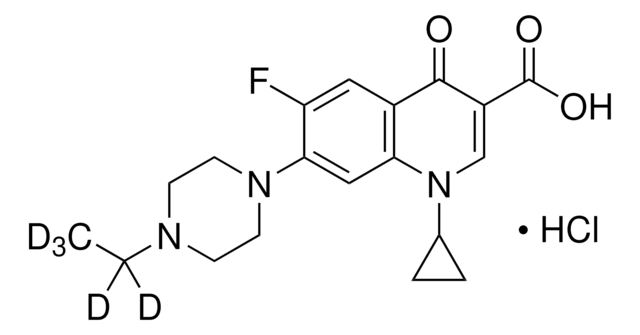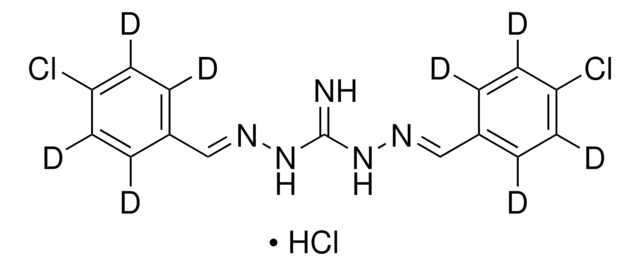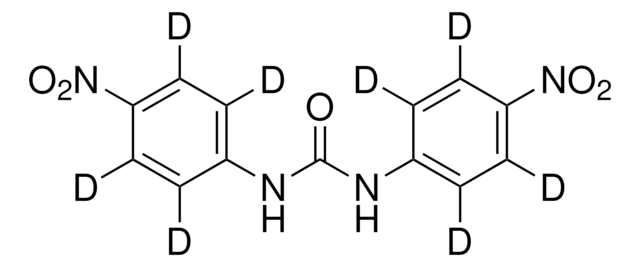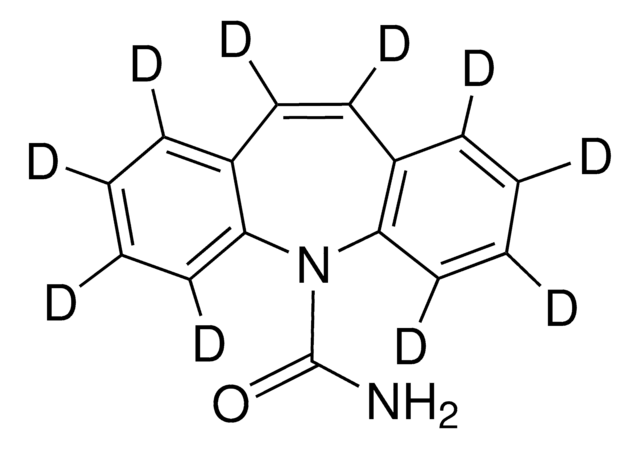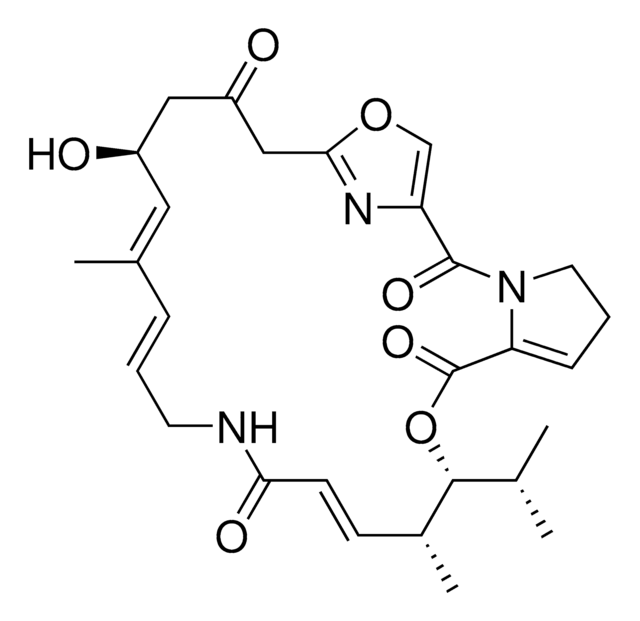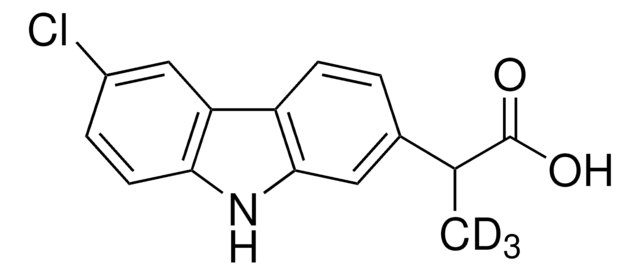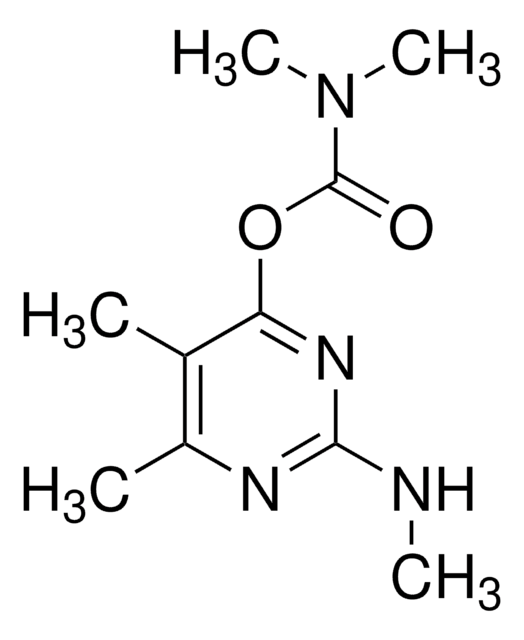32673
Ketoprofen-d3
VETRANAL®, analytical standard
Sinonimo/i:
2-(3-Benzoylphenyl)propionic acid-(methyl-d3)
About This Item
Prodotti consigliati
Grado
analytical standard
Livello qualitativo
Nome Commerciale
VETRANAL®
Durata
limited shelf life, expiry date on the label
tecniche
HPLC: suitable
gas chromatography (GC): suitable
applicazioni
forensics and toxicology
pharmaceutical (small molecule)
veterinary
Formato
neat
Stringa SMILE
[2H]C([2H])([2H])C(C(O)=O)c1cccc(c1)C(=O)c2ccccc2
InChI
1S/C16H14O3/c1-11(16(18)19)13-8-5-9-14(10-13)15(17)12-6-3-2-4-7-12/h2-11H,1H3,(H,18,19)/i1D3
DKYWVDODHFEZIM-FIBGUPNXSA-N
Categorie correlate
Applicazioni
It may be used as an analytical standard for the determination of ketoprofen in compost from sewage sludge by ultrasound-assisted extraction (UAE) and salt-assisted liquid–liquid extraction (SALLE), followed by ultrahigh performance liquid chromatography (UHPLC) coupled to MS/MS.
Note legali
Prodotti correlati
Avvertenze
Danger
Indicazioni di pericolo
Consigli di prudenza
Classi di pericolo
Acute Tox. 3 Oral
Codice della classe di stoccaggio
6.1C - Combustible, acute toxic Cat.3 / toxic compounds or compounds which causing chronic effects
Classe di pericolosità dell'acqua (WGK)
WGK 2
Punto d’infiammabilità (°F)
Not applicable
Punto d’infiammabilità (°C)
Not applicable
Dispositivi di protezione individuale
Eyeshields, Faceshields, Gloves, type P2 (EN 143) respirator cartridges
Scegli una delle versioni più recenti:
Possiedi già questo prodotto?
I documenti relativi ai prodotti acquistati recentemente sono disponibili nell’Archivio dei documenti.
Il team dei nostri ricercatori vanta grande esperienza in tutte le aree della ricerca quali Life Science, scienza dei materiali, sintesi chimica, cromatografia, discipline analitiche, ecc..
Contatta l'Assistenza Tecnica.
